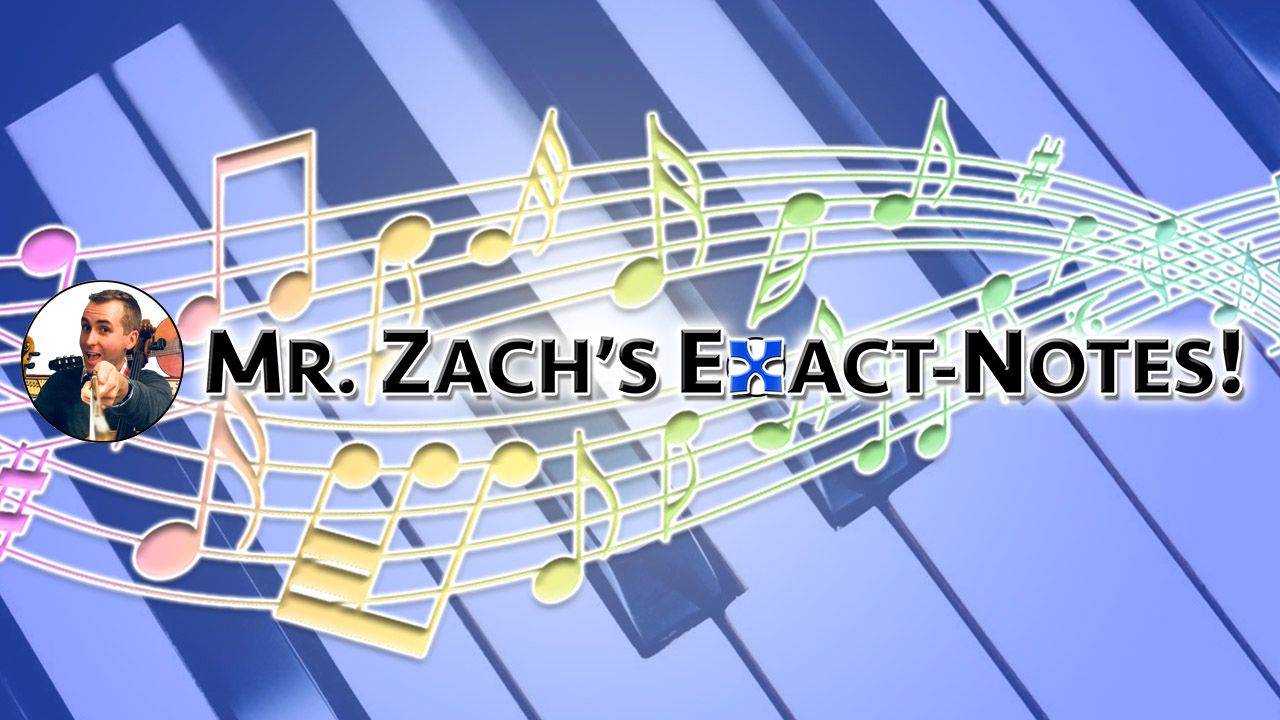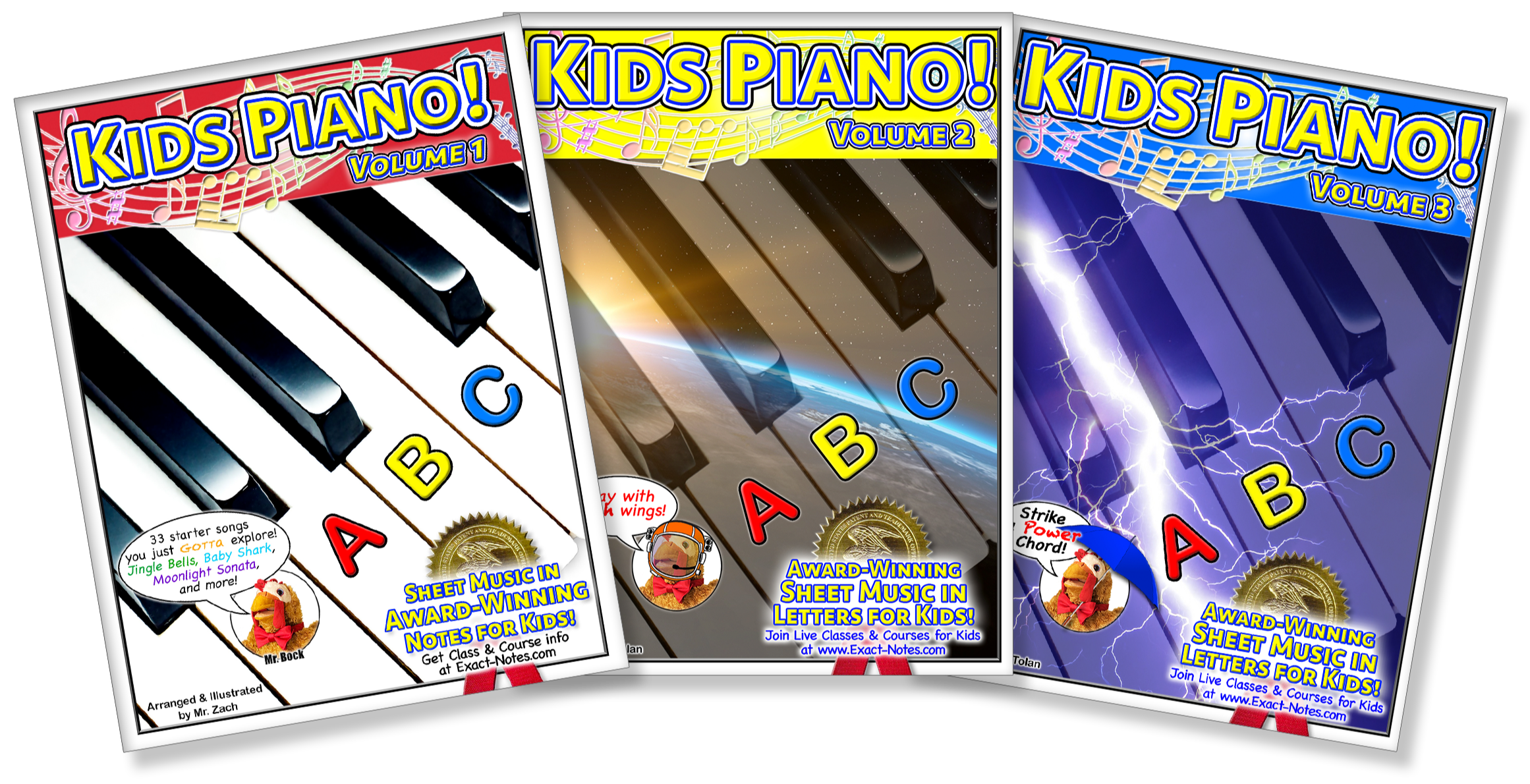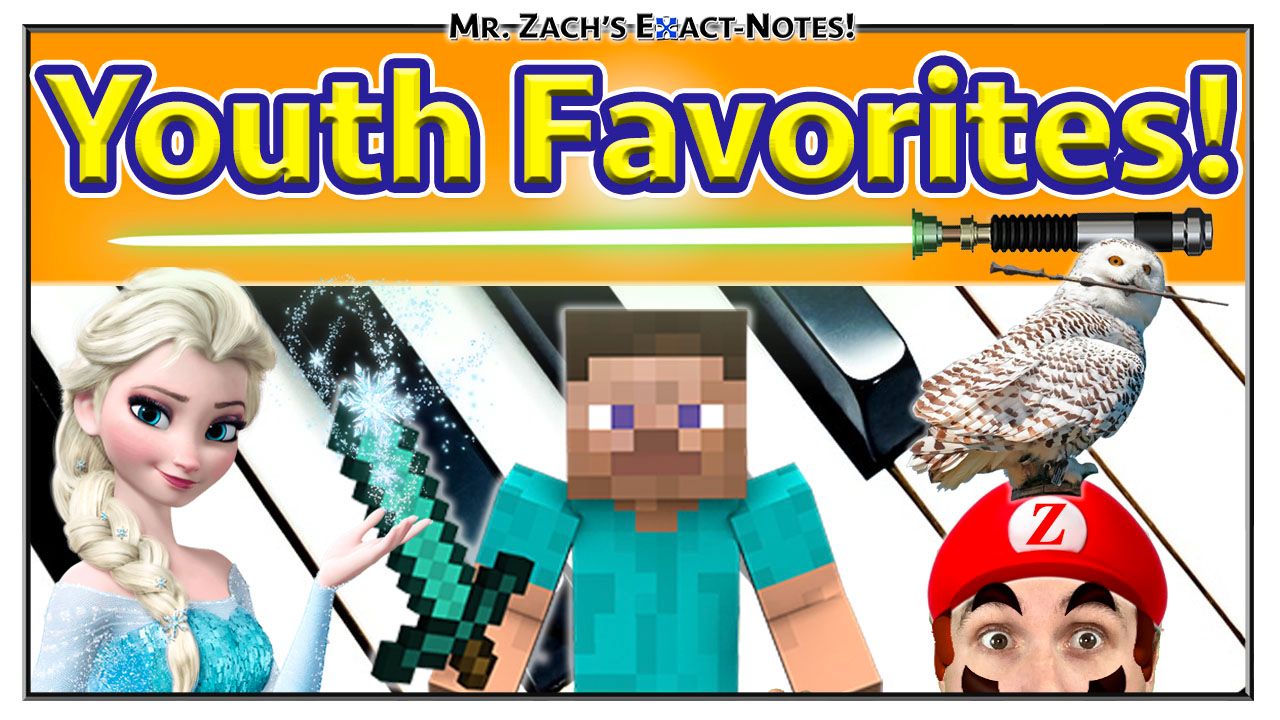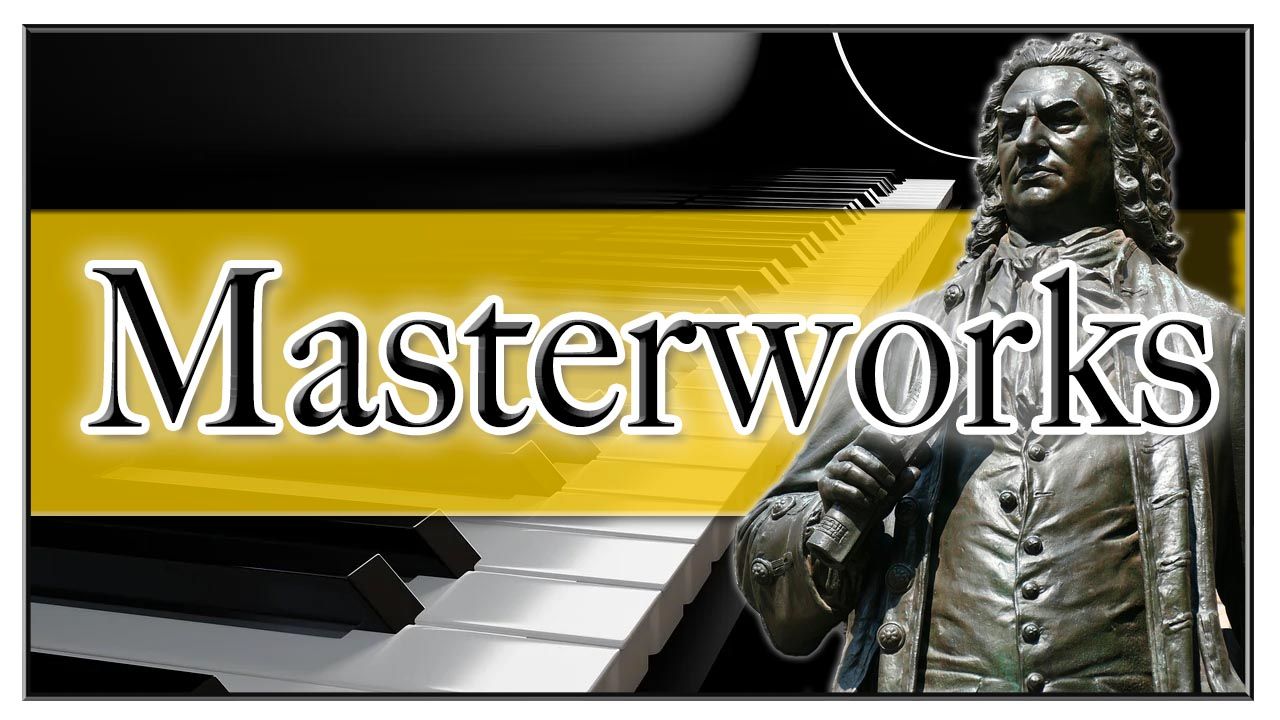Classroom Teachers
For Pre-K, Elementary, Middle & High Schools

Learn new and different ways to teach music in your K-12 classroom!
Study after study shows how learning instrumental music improves outcomes on almost every major indicator. Yet, the main struggle schools have with successfully launching piano/keyboard classes is students learning how to play the instrument at the same time as learning how to read notes.
At Exact-Notes, we solve this problem by teaching music in 2 distinct phases:
- First, students learn to play the instrument using familiar songs and easy-to-read notes on pianos or keyboards with labeled keys.
- Then, they learn to play without labels on their keys and transition to learning standard notation.
By learning to play the instrument first, students learn in a way that is aligned with the way their brain has the most experience, similar to learning to hear and speak a language for several years before learning to read and write it.
This also distributes the cognitive load of learning so students of all ages and learning styles can master each phase step-by-step at their own pace.
Scroll below to learn about how it works for each age group.

Pre-K Piano ⭐️
Studies have proven that students who start instrumental music younger have the greatest and longest-lasting intellectual and emotional benefits. That's why this age group was the beginning of all other work at Exact-Notes.
Students this age come with special methods and strategies. But the principle is that what works for the youngest learners works even better for older students - so if you can succeed here, you can succeed anywhere!
Contact us to discuss how this could work for your classroom or district.
📩 Contact Us
Grades K-5 ⭐️
Students in these grades are usually in Piaget's Preoperational and Concrete Operational developmental stages; that's why their musical ability can flourish if notes are written concretely - i.e., in letters that concretely represent the key and position on the keyboard.
Plus, our virtual course permits teachers to track and assist each student individually as they progress at their own pace, week after week, year after year.
Contact us to discuss how this could work for your classroom or district.
📩 Contact Us
Grades 6-8 ⭐️
Students this age are in Piaget's Formal Operational stage, which is why some succeed with the multi-layered abstract thinking required to read standard notation.
But, too many students this age still find music too complex and therefore, quit; that's why we offer students in these grades learning tracks tailored to their goals, interests and developmental ability.
Contact us to discuss how this could work for your classroom or district.
📩 Contact Us
Grades 9-12 ⭐️
High schoolers - even beginners - can start learning piano in the same 2-step process as Preschoolers; the difference is what they learn.
"Masterworks" may seem like a stretch for a title, but when you see how students in this program learn using literally the same path as Beethoven, Chopin, and more, you'll understand why this course deserves its name.
Contact us to discuss how this could work for your classroom or district.
📩 Contact Us
